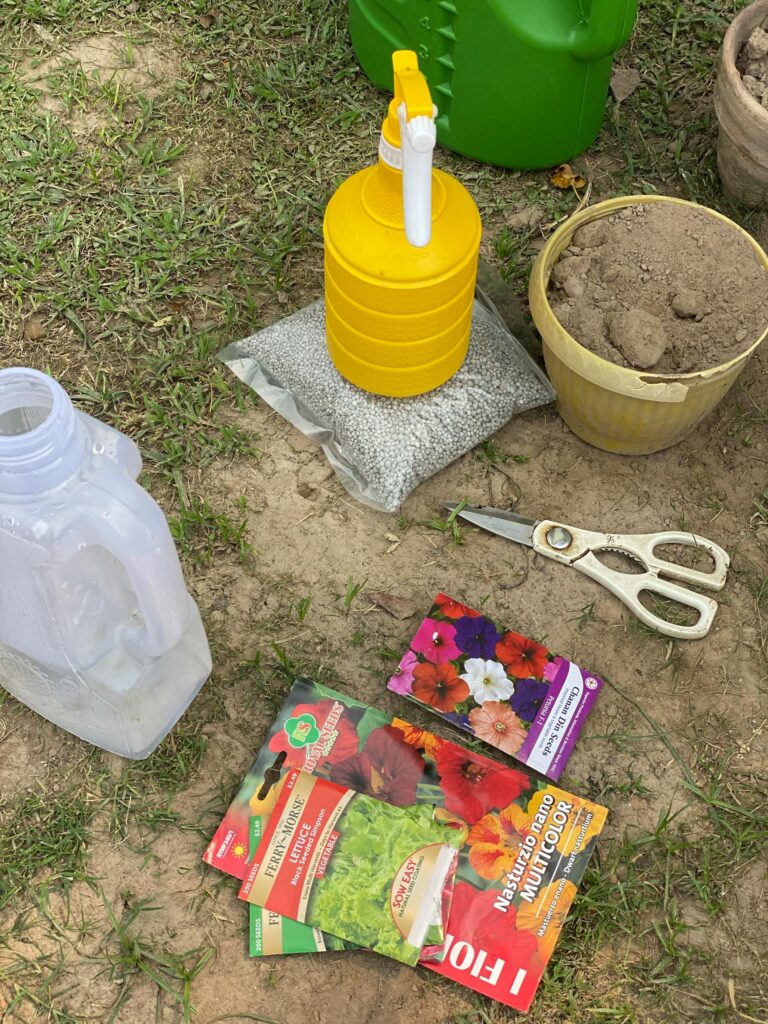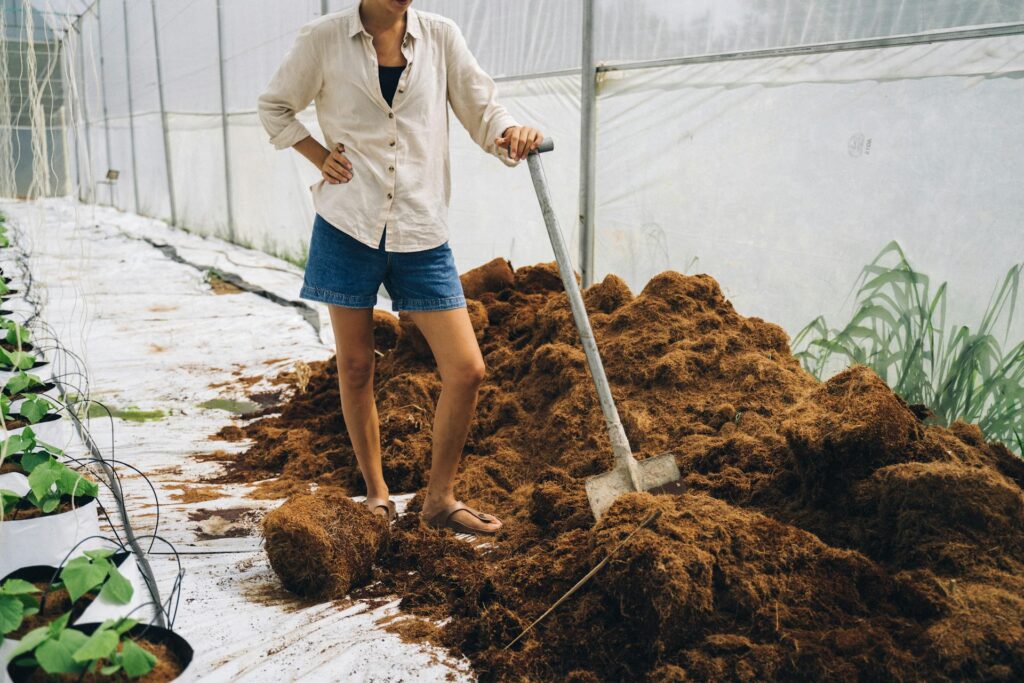When it comes to nurturing your garden, choosing the right fertiliser is one of the most critical decisions you’ll make. Whether you’re growing vibrant flowers, lush lawns, or bountiful vegetables, fertilisers play a key role in providing essential nutrients to your plants. However, the debate between organic and synthetic fertilisers often leaves gardeners scratching their heads.
Which is better? What are the pros and cons of each? We’ll break down the differences, benefits, and drawbacks of organic and synthetic fertilisers to help you make an informed decision for your garden.
What Are Organic Fertilisers?

Organic fertilisers are derived from natural sources such as plant matter, animal waste, and minerals. Examples include compost, manure, bone meal, seaweed extract, and fish emulsion. These fertilisers are often praised for their ability to improve soil health over time, as they release nutrients slowly and encourage microbial activity.
Pros of Organic Fertilisers
- Improves Soil Structure
Organic fertilisers enhance soil health by increasing its organic matter content. This improves soil structure, making it easier for roots to grow and access water and nutrients. Over time, organic fertilisers can transform poor-quality soil into a thriving ecosystem. - Slow-Release Nutrients
Unlike synthetic options, organic fertilisers release nutrients gradually as they decompose. This reduces the risk of over-fertilisation and ensures a steady supply of nutrients to your plants over an extended period. - Environmentally Friendly
Organic fertilisers are biodegradable and less likely to harm the environment. They don’t contribute to chemical runoff, which can pollute waterways and harm aquatic life. - Promotes Microbial Activity
Organic fertilisers encourage the growth of beneficial microorganisms in the soil. These microbes help break down organic matter, making nutrients more accessible to plants. - Safe for Pets and Children
Since organic fertilisers are made from natural materials, they are generally safer to use around pets and children compared to synthetic alternatives.
Cons of Organic Fertilisers
- Slower Results
Because organic fertilisers release nutrients slowly, they may not provide immediate results. If your plants are nutrient-deficient and need a quick fix, organic options might not be the best choice. - Variable Nutrient Content
The nutrient content of organic fertilisers can vary depending on the source. This makes it harder to determine the exact amount of nutrients your plants are receiving. - Bulkier and Heavier
Organic fertilisers are often bulkier and heavier than synthetic ones, making them harder to transport and apply. - Odour
Some organic fertilisers, such as manure or fish emulsion, can have a strong, unpleasant smell.
What Are Synthetic Fertilisers?

Synthetic fertilisers are manufactured using chemical processes and are designed to deliver specific nutrients in precise amounts. Common examples include ammonium nitrate, potassium chloride, and superphosphate. These fertilisers are popular for their convenience and fast-acting results.
Pros of Synthetic Fertilisers
- Fast-Acting
Synthetic fertilisers provide nutrients in a form that plants can absorb immediately. This makes them ideal for addressing nutrient deficiencies quickly. - Precise Nutrient Ratios
Synthetic fertilisers are formulated with specific nutrient ratios (e.g., 10-10-10 for equal parts nitrogen, phosphorus, and potassium). This allows gardeners to tailor their fertilisation to the exact needs of their plants. - Easy to Apply
Synthetic fertilisers are often lightweight and come in granular or liquid forms, making them easy to store, transport, and apply. - Cost-Effective
In the short term, synthetic fertilisers are often more affordable than organic options.
Cons of Synthetic Fertilisers
- Soil Degradation
Over time, synthetic fertilisers can degrade soil health by reducing organic matter and disrupting microbial activity. This can lead to compacted, lifeless soil that struggles to support plant growth. - Risk of Over-Fertilisation
Because synthetic fertilisers are highly concentrated, it’s easy to over-apply them. This can burn plant roots, harm beneficial soil organisms, and lead to nutrient runoff. - Environmental Impact
Synthetic fertilisers can contribute to water pollution through runoff, which can harm aquatic ecosystems and contaminate drinking water. - Short-Term Solution
While synthetic fertilisers provide quick results, they don’t improve soil health in the long term. This means you’ll need to reapply them regularly to maintain plant growth. - Potential Harm to Pets and Children
Synthetic fertilisers often contain chemicals that can be harmful if ingested or inhaled, making them less safe for households with pets or young children.
Which Should You Choose?

The choice between organic and synthetic fertilisers ultimately depends on your gardening goals, values, and the specific needs of your plants.
- Choose Organic If:
You’re focused on long-term soil health, sustainability, and environmental impact. Organic fertilisers are ideal for gardeners who want to build a thriving ecosystem in their soil and don’t mind waiting for slower results. - Choose Synthetic If:
You need quick results or are dealing with a severe nutrient deficiency. Synthetic fertilisers are also a good option for container gardening or situations where precise nutrient control is required.
Combining the Best of Both Worlds
Many gardeners find success by using a combination of organic and synthetic fertilisers. For example, you might use synthetic fertilisers to give your plants a quick boost at the start of the growing season and switch to organic options for long-term soil health. This hybrid approach allows you to enjoy the benefits of both types while minimising their drawbacks.
Tips for Using Fertilisers Effectively

- Test Your Soil
Before applying any fertiliser, test your soil to determine its nutrient content and pH level. This will help you choose the right fertiliser and avoid over-application. - Follow Instructions
Always read and follow the manufacturer’s instructions when applying fertilisers. Over-application can harm your plants and the environment. - Apply at the Right Time
Timing is crucial when it comes to fertilisation. Apply fertilisers during the growing season when plants are actively taking up nutrients. - Water Thoroughly
After applying fertiliser, water your garden thoroughly to help the nutrients penetrate the soil and reach the plant roots.
Visit Garden Nursery Products for All Your Gardening Needs
At Garden Nursery Products, we understand that every garden is unique. Whether you’re looking for organic fertilisers to nurture your soil or synthetic options for quick results, we’ve got you covered. Located in the heart of the Gold Coast, our store offers a wide range of high-quality garden supplies, including fertilisers, pesticides, fungicides, and landscaping materials.
Our friendly and knowledgeable staff are here to help you choose the right products for your specific needs. From beginner gardeners to seasoned horticulturists, we cater to everyone with a passion for growing. Visit us today and let us help you create the garden of your dreams!


